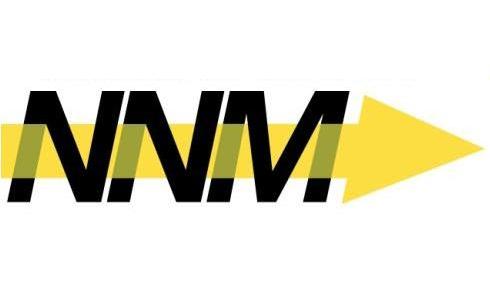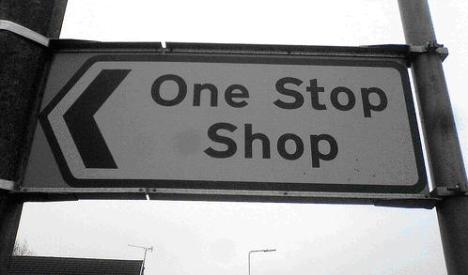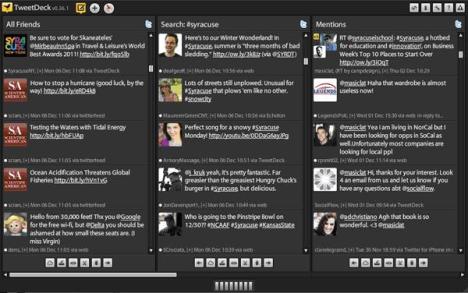Navigate New Media: News Aggregation: Boom or Bane? - Stephen Masiclat & Ron Steinman - MediaBizBloggers

Ron Steinman has been a regular contributor to Navigate New Media. His recent article on privacy issues in new media led to a thought-provoking analysis of the issue by our own Larry Elin and Natalia Berrios. This time Ron has taken on the issue of news aggregation. He shares his concern that news aggregation is limiting the scope and value of the news we consume. Steve Masiclat, associate professor and director of the media management graduate program at Syracuse University's Newhouse School of Public Communications, has a very different point of view.
Ron Steinman's essay…
I am a copyboy at NBC News. I work the 5 P.M to 1 A.M shift. One of my jobs is to run from the fifth floor newsroom to the corner newsstand at 50th Street and 6th Avenue of the then RCA Building and pick up a dozen of the first edition of The New York Times. As big and important as we were, we still did not have nearly as many journalists in place around the world as The Times did. We made use of the front page of the newspaper in a way that today is no longer necessary. I or another copyboy (there were usually two on each of the three shifts in those days) would compose a cable using one line out of each story from The Times' front page. The editor in the slot would check our work and then sign it. One of us rushed the cable to the wire room on the seventh floor where an operator would send it to our bureaus around the world, but especially to Moscow, where during the Cold War, it was important for our bureau chief to have a sense of what The Times, and we, were covering.
All those years ago, of course, the Internet did not exist. Satellites for transmitting TV and radio news did not exist. Overseas telephones worked sporadically. Though high-speed telex operations used mostly by the wire services usually worked well, in broadcasting we still relied on airplanes to get film stories to the States for editing and airing. What is this all about? It struck me that the cable we composed for our overseas bureaus was an early incarnation of what aggregators are doing today. Then it was information for the few. Now aggregators are the only way many people get the news. And that, as I see it, is the problem.
Increasingly, aggregators are a one stop shop for news.
Unquestionably, aggregators offer a real service, but I also see them, through no fault of their own, as a real danger. Even so, this is less about the aggregators and more about those who use them. The growth and belief in aggregators is fascinating and dangerous.
By all estimates, there are now more than a billion personal computers in the world. More than three billion people have cell phones. Three billion people! This is staggering. Online viewing is rapidly rising. All these computers and computer-like devices require a means of spreading the infinite reams of information they capture and generate. This is where the aggregators come in with their idea of making life easier for anyone seeking knowledge or at least a sense of the world. An aggregator enables a person to get as many bits as he/she wants from as many different sources. Editors in print and on the Web create headlines to grab the reader's attention. However, one must read beyond the headline to understand what the story means.
We know that fewer people read a newspaper each day. Many more read a news Web site. Note that I did not say how many get their news from a Web site. Too many people these days think that when they see a headline they are getting the news. Nothing is further from the truth. Do aggregators really work or are they a lazy person's way of getting only a taste of the news. Do people actually read what they see on their screen or do most of these headlines simply pile up and then fade away by the end of the day or whatever news cycle you are on? Chances are that if a person aggregates material from too many Web sites, he or she will never get to read anything. Who has the time?
According to the Pew Project for Excellence in Journalism and its report on The State of the News Media 2010, there are approximately 4600 news and information websites Pew used in its survey. Somehow, I think that is a short count but I have no way of knowing. The top 7% get about 80% of all the traffic. Of those Web sites, aggregators make up 27% of the top news sites. Some of these are pure aggregators, meaning they produce northing new or fresh. They collect and distribute, but originate nothing original. A few Web sites such as MSNBC Digital Network, Yahoo News and AOL collect and also originate material. They are a tiny minority. In fact, it seems everything today is part of a niche and each niche gets smaller by the minute. Celebrity. Politics. Science. Sports. International. Religion. Name it. Order it up on Google. We should not doubt the relevance of Pew's research. But quantifying the role of aggregators does not give us a better understanding of their role in modern life. Pew does not take into account why people access aggregators. Is it a lack of time in an overly busy world that leads people to enter an aggregator? Is it for the jolt of energy a person ultimately gets at high speed from a story? Actually, the amount of time spent on some sites is so short as to be negligible. According to Pew it can range from a few minutes to a whopping 48 minutes, a number I find hard to believe unless the reader fell asleep while reading.
Those who avail themselves of an aggregator are not the problem. People delude themselves thinking the aggregator serves as an easy way to organize and absorb content, I doubt the depth of how much information is really absorbed. Someone else, whether a machine or person, but these days mostly a powerful computer, does the work of assimilating, finding and presenting information that, with a bit of effort and time, a person could find for him or herself. I will concede that time is of the essence, and not always available. Some sites go even further by allowing visitors or subscribers to make their own front page with stories they believe are important for them. It could be about sports, movies, and gossip, even Washington politics. The individual often chooses his or her subjects based on simplicity and emotion, rather than complexity.
Another growing problem is that aggregators often link to other sites without obtaining prior consent. Though the aggregator gives credit to its source, it presents material created by other sources as if the information is its own. The reader gets free information. The organization that collected the news suffers because it receives nothing in return for its product. The aggregator gets a free ride on information collected and parsed by another person or organization. I do not believe the average person subscribing to an aggregator knows the difference. Yes. Yes. As I have said, aggregator Web sites exist to save people the time and the effort they might expend if they surfed the Web to get the information on their own. If something new about a designated subject appears on or off the Web, the aggregator collects it and then disperses it to its clients. If you understand the Internet and how it works, none of this is new. We call these applications RSS readers, feed readers, feed aggregators, newsreaders or search aggregators. Aggregators only collect and copy.
As smaller and smaller screens start to dominate our lives, meaning PDAs, cell phones – the new mini-computers, the iPad and its imitators, who will supply original content? If the major players in legacy media continue to fail and decline in output and influence, what will take the place of the hunters and gathers of any kind of news? Surely it is not what some are calling "hyper local news sites," the Web sites devoted to local news. These are often well meaning and have an important purpose. But they, too, are struggling as much the big boys to get advertising to stay alive. Citizen journalism, in its attempt to complement traditional news, does not work unless there is a crisis such as the Iranian election where professional journalists do not have access. News cannot live on the work of amateurs or a lucky photo of an event snapped with a cell phone.
It comes down to the most serious challenge the news business faces today. How does any news operation survive? There is no easy answer. However, if the means of collecting and then disseminating the news fails, the aggregators will also fail. They will either have a limited product to put in its feeds, or, worse, no product at all. We must wonder if those who aggregate understand they can crumble if they have nothing to aggregate.
I do not use aggregators for anything except to point the way to a more extensive look at the news. I trust only myself to ferret out a story, even if it takes me longer to do so than it takes for me to read a headline sent from an aggregator. I look at Politico. I subscribe to a series of Google alerts -- most of which I ask Google to create for my personal needs -- for journalism, photojournalism, new media, and the documentary film. These and other sites open a world to me that I would otherwise not be able to access because the amount of information available is staggering. If I could, I would rather do the work myself. But that is impossible, as much as I trust myself more than a powerful algorithm or even some smart people sitting in the dark in front of those same powerful computers pulling information and sending it to me electronically. Yes, it is all about time. But time is really all we have and how we delegate those seconds and minutes will be the key to our survival.
As I write, the young rarely think of survival. They are too busy sinking into a world of information overload. They have too much living to do. If those who are already living in a digital world of bits and pieces find the text is too much for them to consider, we have to feel sorry for the world they will inherit. Aggregators will become more powerful and more the norm. In fact, all information will come only via an aggregator. Any hope for understanding our world, will die. And there will be nobody around to say, "I told you so," unless, of course, the word comes through an aggregator.
Steve Masiclat responds…
I am a TweetDeck user. I've got a live stream of information from people I trust, and who send me a regular stream of information about topics important to me. I've not met many of these people, but I've come to trust them all the same. Most use their real names and stake their real (online) reputations on the quality of the information they push along the network, but a few use handles or aliases. These people are my network, my social graph. They aren't united by a corporate structure or a common profession, and a few years ago the professionals would have called them sources and worked hard to protect me from their unedited thoughts and words. Now I have software for that. The fact is, I desperately need that software.
Through twitter, I see information that is highly relevant to my professional and intellectual life. In fact I see a lot of it. The sources are multiplied by the connections in my social graph. And while this new media network is very good at pointing me to information from around the world, it can't possibly send me everything I need. So occasionally I set up hashtags for various keywords--#syracuse to receive news on my city and workplace, #49ers when I'm feeling homesick.
Twitter and TweetDeck allow people to access relevant news that was never available before.
In this new world, I'm the aggregator. The old media term for people like me was gate-keeper, but like so much else in the world, gate-keeping is no longer what it was. Nor should it be.
The fact of the matter is, the web, social media and aggregating tools are the best things to happen to journalism and civic information since the invention of, well. . . civic information. World wide web and telecommunications infrastructure connect me directly to more government, watchdog and citizen information sources than any one news organization ever could. Applications like Twitter and Google allow me to set up my own collections and filters. New media have made me my own editor. I'm seeing little down-side.
While some lament the loss of a professional class of gate-keepers, I would submit that they never really did that necessary a job. Gatekeeping (the theory and the practice) was a theory that rationalized the presence of institutional filters or gates that winnowed many things (stories, ideas, memes) into a few. It's a model that explained the mass media processes. Gate-keepers were a necessary part of mass communication, but the internet has ushered in the era of mass customization. In the digital new media world, gatekeeping has lost its relevance, and a quick examination of the numbers shows how.
Let's start with three numbers: 25, 50 and 3,000.
The average news organization gets about 3,000 news stories a day from the Associated Press wires, but a typical print newspaper publishes only about 50 stories a day and of these about half come from the wires. In other words, approximately 25 wire stories are published every day.
If every editor/gatekeeper at the nation's newspapers published a unique set of 25 wire stories, we would only need 120 news outlets to negate the effect of the gates (120 x 25 =3,000). But wait. All these editor-gatekeepers are trained professionals who apply strict criteria to assess news-worthiness or salience. In assessing those 3,000 wire stories, every editor/gatekeeper would choose only the most news-worthy. As a group, they would never publish mutually exclusive subsets of the AP wire.
For the sake of our thought experiment, let's assume a 99% overlap in the choice of stories from the wires. At 1% variance, you need 1,200 news outlets. (3,000 / 2.5=1,200). According to Al Nuarth of USA today, on May 23d of 2008 there were over 1,400 newspapers.
Now, as previously stipulated, no one subscribes to that many newspapers, but the fact remains, there is no shortage of either news or paths to news. We have many choices. Too many. And if we look online, the situation is worse.
If we stipulate the Pew Center's numbers for news and information sites (4,600), the bottom line is the raw number of easily available outlets for news effectively negates any gatekeeping effect. All the gatekeepers cancel each other out. The result to us, the audience, is that there are effectively no gatekeepers.
Then there's television.
Anyone who has access to cable has at least four 24/7 news outlets (CNN, HeadlineNews, MSNBC, FoxNews). News is available constantly. We aren't suffering from a scarcity of, or lack-of-access to news; there's an excess of the stuff.
In the internet era, the core issue is no longer the institutional act of limiting and prioritizing what's news; the institutions have failed at that. What constitutes citizen engagement is no longer consuming news but actively managing it.
Aggregating software with its accompanying filters is the single best way for me—for anyone—to handle the excess of news and information. It lets me choose my sources, my interest areas, and my mode of consumption. Aggregators aren't a problem, they're a godsend.
Walt Kelly famously warned us that when we met the enemy he would be us. The internet information version of that sentiment is that you should be very careful as you hunt down those nasty aggregators; if you're anything like me, you'll end up seeing a very familiar target.



